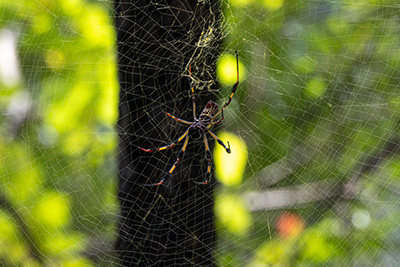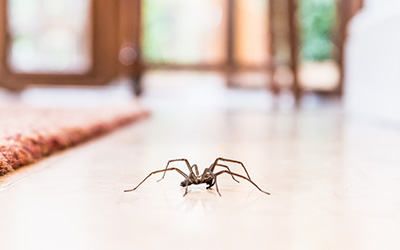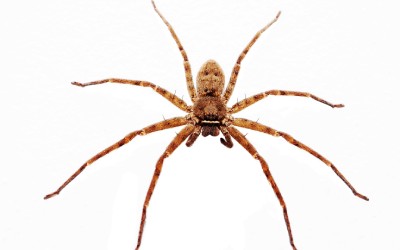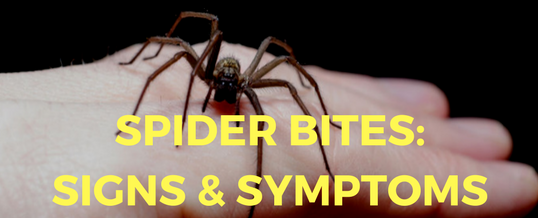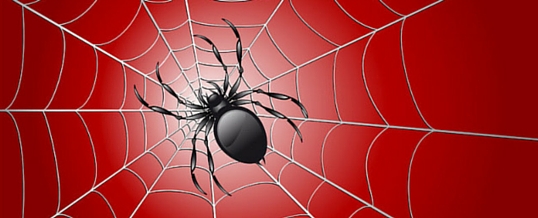Have you recently stumbled upon an unexpected guest on your property, perhaps a spider that appears unusually large? If you’ve witnessed a conspicuously large arachnid weaving its intricate web amidst your trees, rest assured, you’re not alone. An increasing number of residents in Mid-South TN have reported sightings of what is presumed to be the Joro Spider, an orb-weaver species gradually extending its domain across the eastern United States.
This blog is meticulously tailored to offer valuable insights into the presence of this captivating arachnid within your local environment and to determine whether any measures for spider extermination services are warranted.
What does Joro Spider look like?
Characterized by its substantial physique and vivid colors, the Joro Spider easily distinguishes itself from the more common spider species you may encounter. Notably, the contrast between males and females is striking, owing to sexual dimorphism, a biological phenomenon where both sexes of a species exhibit distinctive characteristics beyond their sexual organs.
Female Joro Spider:
- Size: Impressive, with a body length ranging from approximately 0.75 to 1 inch and a leg span extending up to 4 inches.
- Coloration: Marked by bright yellow and blue tones adorned with distinct red markings.
- Web: Constructs expansive, intricate webs spanning up to 10 feet in diameter.
Male Joro Spider:
- Size: Noticeably smaller when compared to females.
- Coloration: Exhibits darker and less vibrant hues, with subdued colors.
- Web: Does not engage in web-building activities like their female counterparts.
The Joro Spider’s web itself is a marvel—vast, golden, and exceptionally robust, resembling a glistening thread adept at capturing a diverse array of insects.
Where Can the Joro Spider be Found?
Initially presumed to require expansive natural habitats in tropical climates for optimal survival, the Joro Spider has defied expectations by showcasing a remarkable adaptability to diverse environments, including urban landscapes. Notable sightings near highways and within cities have underscored their impressive ability to thrive, prompting investigations into the potential scope of their range expansion.
Are Joro Spiders a Threat?
Despite their imposing appearance, Joro spiders typically pose minimal threat to humans. While equipped with fangs capable of biting, these arachnids tend to display timid behavior, opting to flee rather than confront.
Origins and Future Prospects for the Joro Spider:
Originating from East Asia, the Joro Spider is believed to have unintentionally infiltrated the U.S. via shipping containers, leading to their presence in various states, including Mid-South TN. As for the future of the Joro Spider in Mid-South TN, indications suggest their continued presence and proliferation. With their adaptability and successful breeding patterns, their population will likely expand, further integrating them into the local ecosystem.
Questions About Spiders or Other Pest Concerns?
While the appearance of the Joro Spider in Mid-South TN may initially raise concerns due to its size and unfamiliar appearance, it’s essential to acknowledge that they pose little threat. However, understanding and coexisting with new species can present challenges.
If you have inquiries about the Joro Spider or any other pest-related issues, do not hesitate to reach out to Inman-Murphy, Inc. for expert guidance, information, and specialized spider management services. Our team is well-prepared with the requisite knowledge and tools to address any pest-related situation, ensuring your home remains a safe and comfortable environment.

